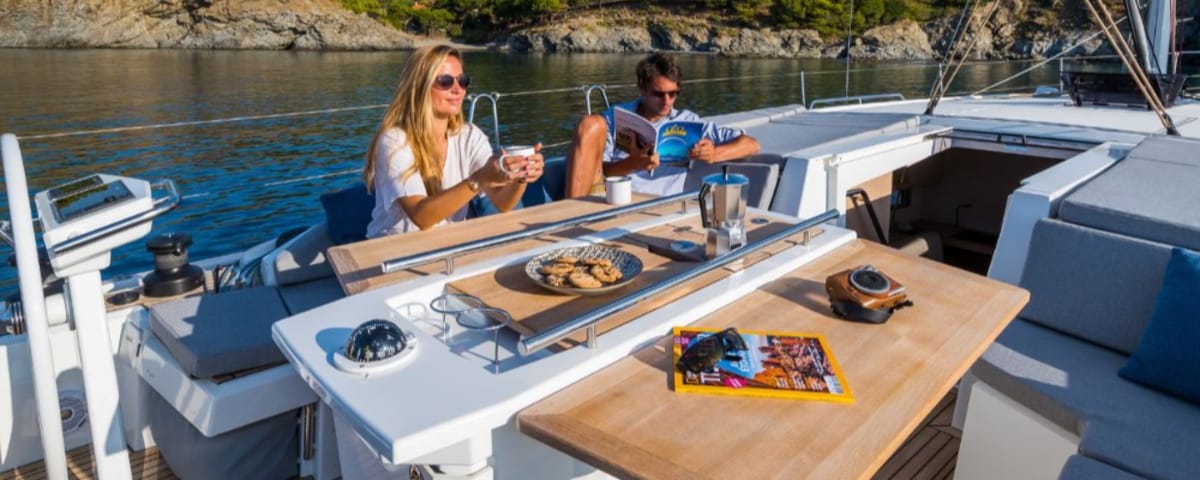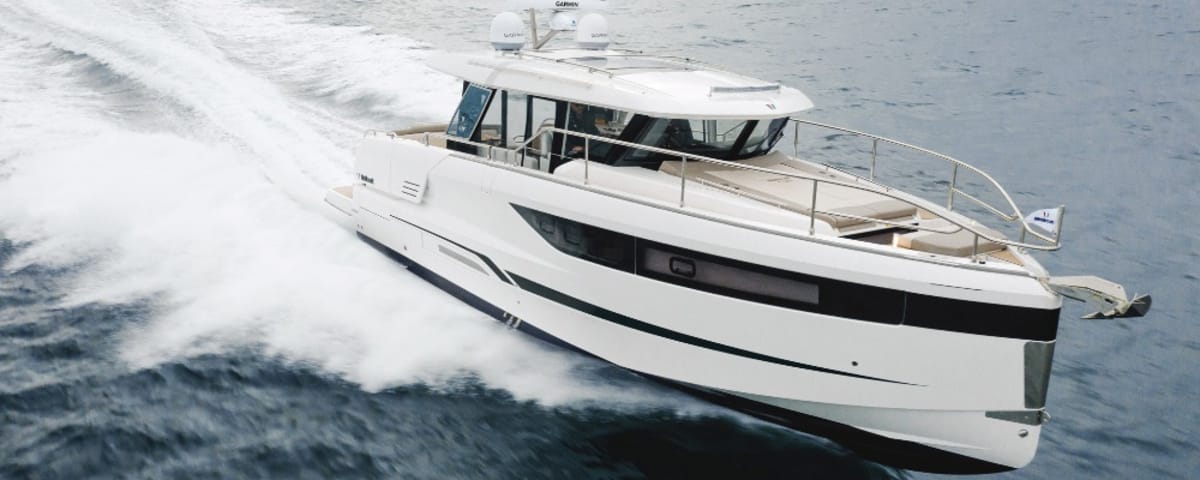Boat Rentals: Dream Vacations Require Careful Planning!
All nautical vacations require serious preparation, especially if you’re renting a boat in an unfamiliar sailing area. The thrill of discovery often drives the choice of destination. Rest assured, boat rental companies are located in the most beautiful sailing areas around the world, from the Australian Great Barrier Reef to the Scandinavian fjords, Corsica, the Antilles, Greece, or the American Keys. The range of options is vast.
Once you’ve chosen your destination, the next step is to select the boat that best suits your crew, their sailing style, and everyone’s expectations. Monohull, catamaran, or trimaran, sailing or motor, sporty or very comfortable, with a crew, a skipper, or bareboat? The options are numerous.
Essential Arrangements with Your Rental Company
Whether you’ve opted for Brittany, Croatia, Polynesia, or Baja California, you’ll now need to organize things with your rental company. Some will offer a complete service, including plane tickets to get there, transfers between the airport and the departure base, and provisioning. If you prefer to organize things yourself, you’ll need to book the various flights and transfers directly. In this case, you’ll need to inform the rental company of your arrival time at the base so they can prepare the boat and organize the briefing.
But before discovering the base and enjoying your vacation, you’ll need to settle a few administrative points… including the choice of insurance!
Insurance: Guaranteed Protection
In the rental agreement that binds you to your rental company, you are normally protected by insurance. Accidental damage to your boat during the rental period is therefore guaranteed. Similarly, this insurance includes “liability” coverage. This “liability” covers you in the event of damage caused to others – property or persons. Also, check that the insurance offered by your rental company protects your crew in the event of injury.
The boat is therefore normally insured. In the event of damage or total loss of the vessel, if this is due to an accident and not to a manifest fault of the skipper, you will only be liable for a deductible, the amount of which is specified in your rental agreement, is more or less important and depends on the value of the boat. Most rental companies offer a “deductible waiver” option which allows you, for a sum defined in advance, not to have to pay this deductible in the event of an accident.
You also have the option of better protecting yourself – sailing is never without risk – by taking out temporary insurance (from your rental company or a specialized insurance company) to cover engine damage, theft, possible towing costs, etc.
Finally, don’t forget two truly essential types of insurance. First, “cancellation insurance,” which, in the event of an unforeseen event that forces you to cancel or shorten your trip, will reimburse you for all or part of your reservations. Second, “repatriation” insurance, which covers medical expenses – which can be exorbitant in some countries – and repatriation costs if necessary.
If, unfortunately, you have a problem during your rental, with the insurance taken out, you should only be liable up to the amount of the deposit you have paid, unless you have opted for the deductible waiver.
But be careful, for the insurance to work, you must have respected your contractual obligations. If you have sailed at night when the rental company prohibits it, if you are in an unauthorized area, if you are intoxicated or have manifestly not respected the conditions of use imposed by the rental company and the insurer or the regulations of the boat, you will be responsible for the damage.
Similarly, if you have chosen to use a professional skipper, check with the insurance company and the rental company who is responsible for the boat: the professional skipper or you, the named renter?
Finally, be vigilant and check what is covered by the insurance: if you burn a cushion with your cigarette, if you misuse the marine toilets and they become blocked, in the event of theft of the dinghy, etc. Don’t hesitate to ask many questions to be perfectly informed. After the damage, it will be too late…
Looking at insurance contracts is never fun. But it is essential to take the time to study them carefully. The sums involved – whether it’s the rental, plane tickets, or deposits, or even the price of the boat – are significant. So choosing your insurance well and, above all, knowing what is covered or not is a necessity.
Provisioning: When and How to Prepare It?
Before enjoying the enchanting anchorages of your next rental destination, you will still need to finalize certain points, including the essential provisioning. Again, most rental companies will offer you an option to save time when arriving at the rental base. Nothing is more tedious than having to go shopping for a week (or more) for a full crew when disembarking from the plane… If you opt for the “provisioning” option, everything will already be on board upon your arrival, and you will only have to check and store your provisions. An appreciable time saving…
The First-Aid Kit: Meticulous Preparation to Avoid Spoiling Your Vacation
You will find in your rental boat a first-aid kit equipped with the essential minimum (and legal). But this should not prevent you from embarking some essentials to cope with small problems on board. We start with the basics: sunscreen with a maximum protection factor (and if possible, non-polluting), and its corollary, a cream to moisturize the skin after sunburn… Take plenty of it, the sun is aggressive at sea, and protecting yourself is essential. Another essential is mosquito repellent. Even if the breeze from the anchorage can protect you, you may find yourself in an infested area…
We strongly advise you to take a look at the website of the Maritime Medical Consultation Center of Toulouse. You will find many tips from the CHU of Toulouse for sailors, including a list of products to have on board depending on the planned navigation.
In the case of a boat rental, you are never very far from the base and therefore from the help that your rental company can provide. But for classic “little boo-boos,” it is better to have on board what you need to cope with the most classic eventualities.
You can therefore embark analgesics to fight against pain, something to fight against gastric problems (the famous traveler’s diarrhea…), an antihistamine against allergies, classic antibiotics, eye drops for the eyes, and something to treat dermatological problems, which are also quite common in the humid atmosphere of a boat. Don’t forget bandages, sterile compresses, adhesive tape, an antiseptic, and… a survival blanket that can always be useful. And, because it doesn’t just happen to others, provide medication against seasickness… Make an appointment with your family doctor to develop the first-aid kit that suits your crew according to the pathologies of each other. He will be best able to advise you effectively. Do not leave without your prescriptions if you are following a treatment and with the quantity of medication to last well over the duration of your stay.
Finally, don’t forget to apply to your health insurance fund for an international social security card. Thanks to it, if you are on vacation in Europe, your expenses can be covered by the local social security organization. If you are sailing outside Europe, your expenses – again thanks to this international social security card – can be reimbursed by the French Health Insurance under certain conditions…
Warning, in case of health problems, contact your doctor by telephone or the Maritime Medical Consultation Center of Toulouse before self-medicating.
The Essential Briefing to Not Miss Anything in Your New Sailing Area
Here you are at the rental base. You have dropped off your belongings on board, and you will now attend the briefing organized by the rental company. You have inevitably started preparing your navigation upstream, but it is at the time of this briefing that you will precisely validate your cruise, the stopovers, the anchorages, and visits not to be missed. The rental company will therefore present you with the area, the nice spots, the distances between the anchorages, where he advises you to spend the night, the small restaurants where he has his habits. In short, his good tips to make the most of your cruise. During this briefing, the rental company will do his best to advise you. But he knows neither the motivations of your trip nor the tastes of your crew. This briefing must therefore be a real moment of exchange. Ask questions, ask for explanations on the prohibited areas and local rules (especially for insurance questions). Do you like fishing? Spearfishing? Explicitly ask your interlocutor which fish you are allowed to catch, the minimum size allowed for their capture, and if you can consume them. Do you love sailing far and long? Ask him how far you can go depending on the weather and prepare an ad hoc course for you. If you have children on board, find out so that they can fully enjoy the beaches and their first snorkeling dives.
In all sailing areas, you will find something to satisfy all the different types of renters. You still have to communicate to explain what you are really looking for in order to get out of the classic tour…
The Inventory: It’s an Opportunity to Ask All the Questions to Discover Your Boat
Ah, the inventory… For many, it’s just about counting the teaspoons on board. And we tend to evacuate the chore by having only one objective: to set sail and go enjoy. However, the moment of the inventory is also – and even especially – the one where we discover a new boat, with equipment and safety elements that may be unknown to you. Again, don’t be afraid to ask questions. You will not pass for a bad skipper or an incompetent sailor, but on the contrary for an informed person who wants to know his boat before leaving with his family. Pay particular attention to safety elements such as vests. Where are they stored? Are they in sufficient numbers? In what state? Do the sizes correspond to the people on board? Is the tool kit complete to solve small problems? Have you understood the operation of the VHF, the on-board electronics? Is a paper map of the area on board? And is the operation of the toilets well understood by the entire crew? Where can you cut the batteries if needed? Do not leave without having checked the condition of the sails and the proper functioning of the windlass. Finally, check with the rental company the exact draft of the boat and the pilot’s foot…
Before leaving, take the time for a real safety briefing with your crew, including the essential rules to respect in case of man overboard.
This time, that’s it: you’re all set. All that remains is to enjoy your vacation and these beautiful navigations to come.
Enjoyed this post by Thibault Helle? Subscribe for more insights and updates straight from the source.


